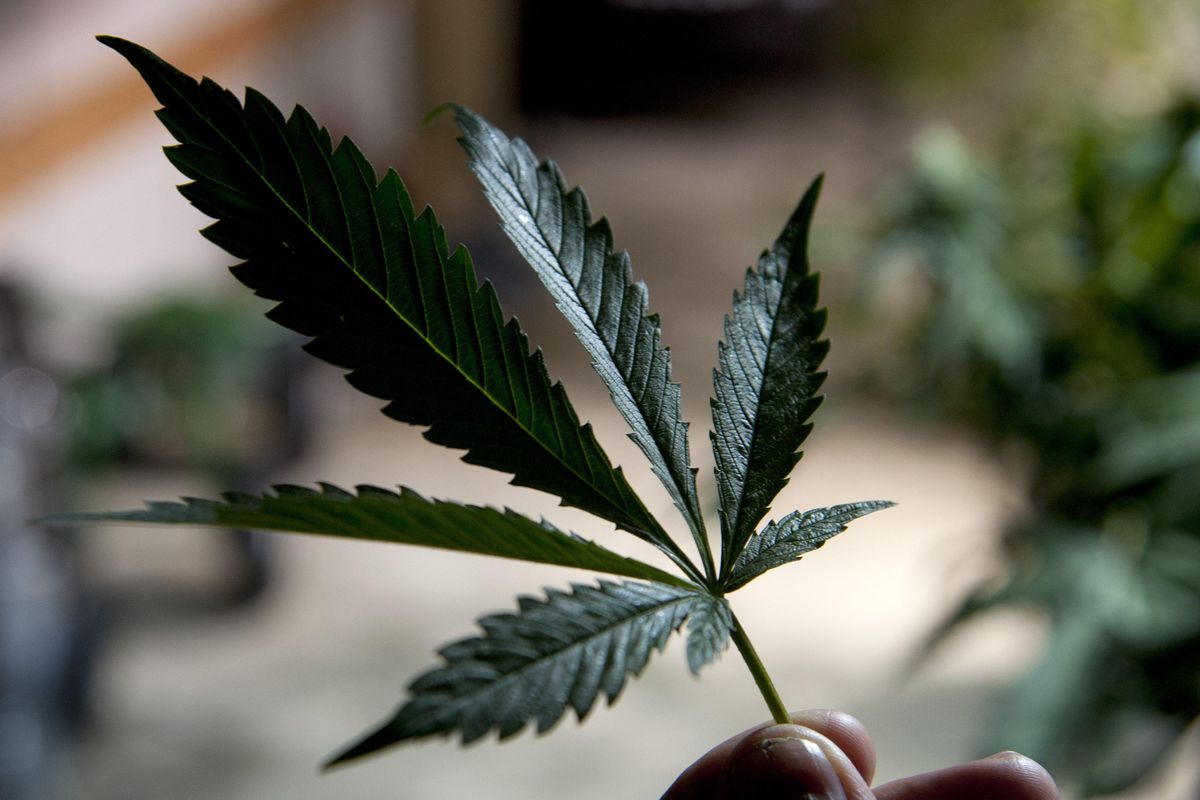Spokane marijuana industry more concerned about local policies than what Trump might do

The question marks surrounding President-elect Donald Trump’s victory Tuesday extend to Washington’s marijuana industry.
While two of the rumored candidates for attorney general in the Trump administration have said they oppose legal marijuana, those in the industry say they’re still more focused on local policies than what might or might not happen nationally.
Competing with businesses attempting a race to the bottom on prices, and navigating the local tax structure, are more pressing concerns than who’s in the White House and what they’re going to do about marijuana, said Sam Calvert, owner of the Green Star Cannabis store on Division Street in Spokane.
Said state Rep. Marcus Riccelli, D-Spokane, “I think we’re still ironing out our own system here.”
State lawmakers will mostly be dealing with how to divvy up the millions of dollars collected on marijuana sales in the form of excise taxes, said Riccelli’s colleague, Rep. Timm Ormsby, also a Spokane Democrat. Since 2014, when legal sale of marijuana to the public began, the state has collected $357 million in additional revenue from excise taxes on pot. The statewide Initiative 502, approved by voters in 2012, dictated some of the terms for how that money is spent, but lawmakers will still be haggling on spending this year.
“That’s the nut that’s got to get cracked, and I don’t have any predictions,” Ormsby said.
At the same time voters nationwide put Trump in the White House, those in California, Massachusetts, Maine and Nevada legalized recreational use of marijuana, following in the footsteps of Washington, Oregon, Alaska and Colorado.
But marijuana is still a state-by-state market because of federal laws prohibiting the transport of controlled substances. Barring any action from outgoing President Barack Obama, or from Trump, don’t expect to see that change, said Kevin Oliver, a grower and executive director of the Washington chapter for the National Organization for the Reform of Marijuana Laws.
“It would take a federal memo at least for that to happen,” Oliver said.
Marijuana remains an outlawed drug under the federal Controlled Substances Act, though legislation has been introduced in Congress for several years to reclassify it in the same category as some pain medications that can be sold across state lines. Former presidential candidate Bernie Sanders sponsored a bill that would remove marijuana from the list of controlled substances. Marijuana reformists have called for the Obama administration to issue an executive order decriminalizing the drug before he leaves office.
Oliver said it would be politically difficult for a Trump administration to try to roll back the reforms made in the past several years on marijuana, noting that as a result of Tuesday’s election, 1 in 5 Americans now lives in a state where some type of marijuana use is legal.
“Quite frankly, marijuana is more popular than Donald Trump,” Oliver said.
Rudy Giuliani, the former mayor of New York and one of the people whose name has been mentioned as a possible attorney general in the Trump administration, said he opposed the use of marijuana for medical purposes during his unsuccessful run for the GOP nomination. Chris Christie, another possibility and the governor of New Jersey, famously declared on the 2015 campaign trail that Colorado smokers should enjoy their marijuana while they could, because he would enforce federal laws if elected president and outlaw the drug.
The president-elect’s position on pot is not well-defined and has changed through the years. Oliver pointed to comments Trump made in an interview last year with the Washington Post, in which he said marijuana legalization should be left to the states to sort out.
“It’s unlikely the (attorney general) would act independently,” Oliver said.
Any change in federal policy, whether it’s reclassifying marijuana or revising the way pot businesses are taxed and use banks, would trickle down to the local level.
Calvert, of Green Star Cannabis, said about 76 percent of the money he collects in sales goes to some sort of tax, and that’s what a new administration needs to be addressing.
“Financially, it’s tolerable,” Calvert said. But he said his business should be allowed to take advantage of tax deductions enjoyed by every other small business in the community. Current U.S. tax code excludes any business selling Schedule 1 or 2 controlled substances from receiving tax deductions.
“I am personally not fearful” of the Trump administration, he said, though he added several of his customers and employees have come to him with concerns about the results of the election. “I liken it to Y2K, or the end of the Mayan calendar. Everybody panicked, and nothing happened. I don’t make fear-based decisions.”